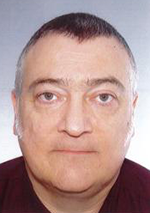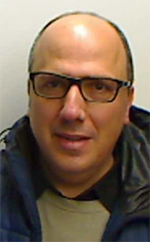Title
A powerful signal nearby L1 frequency band jamming GNSS stations in Observatoire de Paris
Abstract
In the frame of the French metrology organization, the laboratory Systèmes de Référence Temps-Espace (SYRTE) in Observatoire de Paris (OP) is in charge of fundamental activities in the time and frequency domain. Among other systems, the laboratory is operating stations receiving signals from global navigation satellite systems (GNSS) like the Global Positioning System (GPS) or Galileo, aiming at accurate time transfer with other remote time laboratories. Since November 2018, the GNSS signal reception in the L1-band has been jammed by a powerful signal transmitted near to OP in a frequency band allocated to space to Earth satellite telecommunication. This signal power was originally more than 35 dB above the GNSS spread-spectrum power level. A formal complaint was raised in early January 2019 to the Agence Nationale des Fréquences (ANFR). The paper describes the jamming signal and its consequences. The effect of this signal on L1-band reception was not the same on all OP stations, depending on the bandwidth of the antenna around the L1 carrier, but also on the receiver’s different types. It went from no effect at all for GPS-only stations to large data loss and noise increase for multi-GNSS stations. The power of the jamming signal is changing with time and remains under observation. We discuss what might be done to overcome this issue.
Keywords
Galileo, GNSS, GPS, jamming, L1-band
Authors
 Pierre Uhrich
Pierre Uhrich
LNE-SYRTE Observatoire de Paris, Sorbonne Univeristé, France
Pierre Uhrich was born in 1959 in Strasbourg (France). In 1983 he graduated Engineer of the Ecole Nationale Supérieure de Mécanique et des Microtechniques in Besançon (France), and in 1988 he received the Physical Degree in Physics from the Université Louis Pasteur in Strasbourg (France) in Optical Computing. Since 1988, he is working in a laboratory of Observatoire de Paris (Paris, France) currently named LNE-SYRTE, which is the laboratory designated by the French National Metrology Institute (NMI) Laboratoire National de Métrologie et d'Essais (LNE) for time and frequency metrology. His main activities are focused on time transfer by satellite techniques, on time scale generation and on the characterization of oscillators noise. He has been part of the development of relative calibration of GPS time transfer links at the state of the art. Since 2004, he is the LNE-SYRTE Point of Contact for the French contribution to the European satellite navigation systems EGNOS and Galileo. During the last years, he was the LNE-SYRTE Point of Contact for the contribution to the Galileo Timing and Geodetic Validation Facility (TGVF) contract from 2013 to 2017. Since 2018, he is the LNE-SYRTE Point of Contact for the contract related to the Galileo Time Service Provider (TSP). He is also contributing to the timing aspects of the EGNOS Service Performance Monitoring Support (SPMS), which started in 2015. He is an active member of the Working Group on GNSS of the Consultative Committee on Time and Frequency (CCTF) of the Comité International des Poids et Mesures (CIPM).
 Joseph Achkar
Joseph Achkar
LNE-SYRTE Observatoire de Paris, Sorbonne Univeristé, France
Joseph Achkar, PhD (1991) and HDR (2004), is senior research engineer at LNE-SYRTE (Observatoire de Paris). From 1991 until 2001 he was research engineer at LCIE and responsible of the Microwave metrology studies. His research focuses on heterodyne and direct microwave vector network analysis, antenna and noise measurements. In 2001, his area of expertise in metrology research expanded to Time metrology. Since then, his research has focused on comparisons of atomic clocks via satellite telecommunications microwave links, development of calibrated satellite simulator and time and frequency transfer using Software-Defined Radio receivers. Joseph Achkar assumes many responsibilities: member of ERT accreditation committee of COFRAC, technical assessor for COFRAC (France) and OLAS (Luxembourg), French technical expert at CCTF of CIPM, French contact person at TC-TF of EURAMET, Head of French delegation at WP 7A of ITU-R, member of CCTF working groups on TWSTFT and MRA. Joseph Achkar is also currently chairman of Commission A of URSI-France.